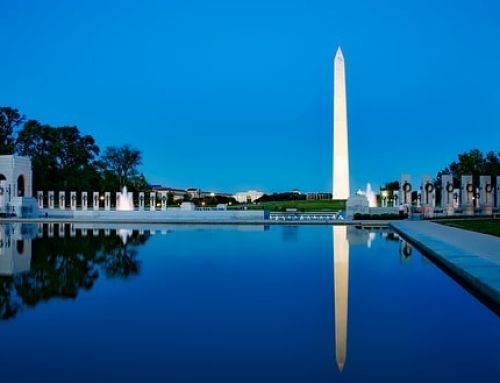18 Jul 20:38
What distinguishes the ESTA from other US visas?

Although an ESTA is commonly referred to as a visa, it is not one. The Electronic System for Travel Authorization (ESTA) is an automated system that evaluates a person’s eligibility to travel to the United States based on biometric data and responses provided throughout the application process. People who use ESTA can travel to the United States under the Visa Waiver Program, which allows them to enter the country without first obtaining a visa. The passport must be an e-passport that contains all of the owner’s biometric information.
TRAVELING TO THE UNITED STATES?
Do You Have U.S. ESTA VISA Travel Authorization? If You Have ESTA Application, Check if it is Still Valid!

Visas in the United States Come in a Variety of Forms
To enter the United States, all foreign citizens must get a visa, which comes in a variety of forms, as we shall see below:
- Tourist/Visitor Visas – These are visas used for both business and pleasure. They are normally only valid for a limited period of time, while many nations allow visitors to stay for up to 90 days without a visa.
- Student visas are necessary for persons who want to study in the United States and are typically valid for the duration of their studies, including practical training.
- Specialty Occupation (Professionals) Visas – These are required by professionals with a bachelor’s degree or above (or its equivalent work experience).
- Exchange Visitor Visas – This visa is required when going to the United States for authorized exchange programs. It frequently includes students, trainees, overseas tourists, au pairs, and a variety of other individuals.
- Intracompany transfer visas are granted to professionals transferring to their employer’s US affiliates or facilities, and executives and managers are eligible for permanent residency without the need for a labor certification.
- Treaty and investor visas are necessary for investors, traders, and their workers whose home nations have business treaties with the United States addressing visa eligibility.
- Fiancé(e) visas – Fiancé(e) visas are available to nationals of the United States if the marriage is completed within 90 days.
- Extraordinary ability worker visas – This is a visa for those with exceptional capabilities, such as sports, company owners, performers, and scientists.
- Visas for artists and athletes – This category includes athletes and artists, as well as entertainment.
- Visas for religious workers – These are visas for religious employees.
- Visas for NAFTA and the US-Canada Free Trade Agreement – This is applicable to Canadian and Mexican citizens under the North American Free Trade Agreement and the United States-Canada Free Trade Agreement.
- Visas for permanent residence (green cards)
- Immigration visas sponsored by family – These are for parents, spouses, siblings, and children.
- Immigrant visas sponsored by employers
- DV-1 visas (“green card lottery”) – Every year, 55,000 visas are distributed at random to applicants from countries who are underrepresented in the general immigration pool.
As we can see, ESTA is a novel sort of travel authorization that simplifies trips for specific tourists. This raises a couple of valid issues. Will additional nations be admitted to the VWP? Is it possible that travel will become easy for people of other nations as well? Or would the new limitations just make travel to the United States more difficult?
To enter the United States, all foreign citizens must get a visa, which comes in a variety of forms, as we shall see below:
- Tourist/Visitor Visas – These are visas used for both business and pleasure. They are normally only valid for a limited period of time, while many nations allow visitors to stay for up to 90 days without a visa.
- Student visas are necessary for persons who want to study in the United States and are typically valid for the duration of their studies, including practical training.
- Specialty Occupation (Professionals) Visas – These are required by professionals with a bachelor’s degree or above (or its equivalent work experience).
- Exchange Visitor Visas – This visa is required when going to the United States for authorized exchange programs. It frequently includes students, trainees, overseas tourists, au pairs, and a variety of other individuals.
- Intracompany transfer visas are granted to professionals transferring to their employer’s US affiliates or facilities, and executives and managers are eligible for permanent residency without the need for a labor certification.
- Treaty and investor visas are necessary for investors, traders, and their workers whose home nations have business treaties with the United States addressing visa eligibility.
- Fiancé(e) visas – Fiancé(e) visas are available to nationals of the United States if the marriage is completed within 90 days.
- Extraordinary ability worker visas – This is a visa for those with exceptional capabilities, such as sports, company owners, performers, and scientists.
- Visas for artists and athletes – This category includes athletes and artists, as well as entertainment.
- Visas for religious workers – These are visas for religious employees.
- Visas for NAFTA and the US-Canada Free Trade Agreement – This is applicable to Canadian and Mexican citizens under the North American Free Trade Agreement and the United States-Canada Free Trade Agreement.
- Visas for permanent residence (green cards)
- Immigration visas sponsored by family – These are for parents, spouses, siblings, and children.
- Immigrant visas sponsored by employers
- DV-1 visas (“green card lottery”) – Every year, 55,000 visas are distributed at random to applicants from countries who are underrepresented in the general immigration pool.
As we can see, ESTA is a novel sort of travel authorization that simplifies trips for specific tourists. This raises a couple of valid issues. Will additional nations be admitted to the VWP? Is it possible that travel will become easy for people of other nations as well? Or would the new limitations just make travel to the United States more difficult?

TRAVELING TO THE UNITED STATES?
Do You Have U.S. ESTA VISA Travel Authorization? If You Have ESTA Application, Check if it is Still Valid!
Follow us to stay up to speed on all of the newest information and to ensure you know all you need to know before coming to the United States.


























